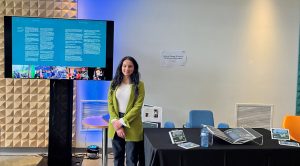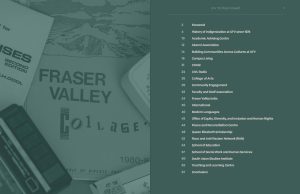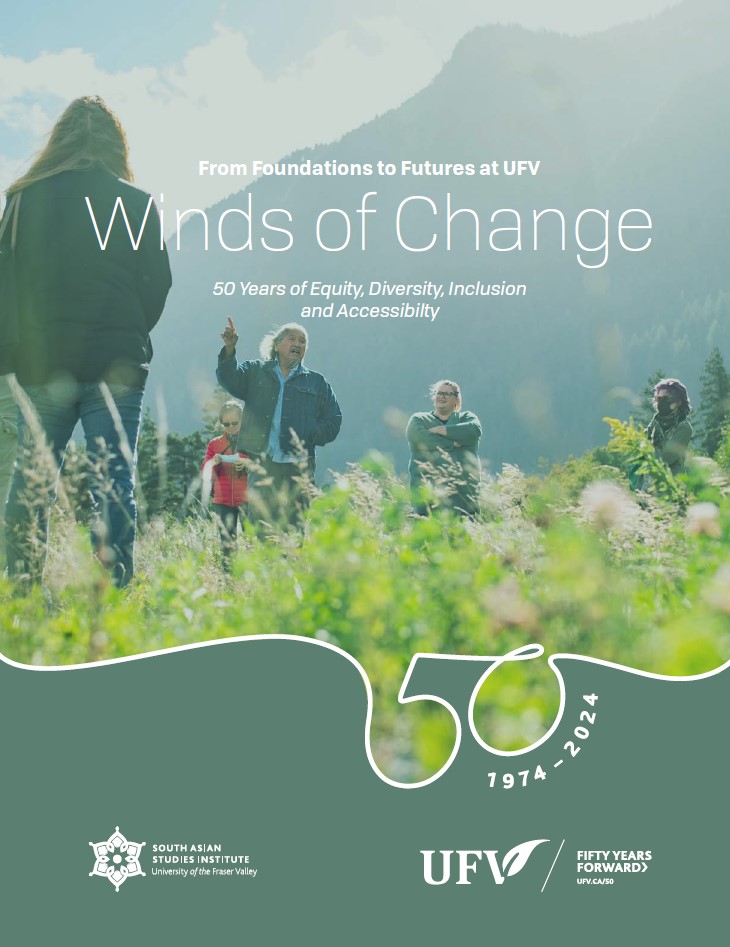 From humble beginnings, Fraser Valley College went to becoming the University of the Fraser Valley (UFV). This has been a 50-year long journey (1974-2024). UFV Fifty Years Forward celebrated the special anniversary with a full year of engagement, including special events and programming. As part of this celebration, over 32 initiatives received funding through UFV 50 Program Fund grants, one being a project led by us at the South Asian Studies Institute – Winds of Change: 50 Years of Inclusivity, Equity, and Diversity.
From humble beginnings, Fraser Valley College went to becoming the University of the Fraser Valley (UFV). This has been a 50-year long journey (1974-2024). UFV Fifty Years Forward celebrated the special anniversary with a full year of engagement, including special events and programming. As part of this celebration, over 32 initiatives received funding through UFV 50 Program Fund grants, one being a project led by us at the South Asian Studies Institute – Winds of Change: 50 Years of Inclusivity, Equity, and Diversity.
Winds of Change is a UFV50 initiative dedicated to capturing and highlighting the stories, initiatives, milestones, and ongoing efforts of various programs, departments, and organizations at the University of the Fraser Valley. Through interviews, storytelling, and visual documentation, the project showcases how UFV continues to create an inclusive, diverse, and accessible space for learning and community engagement. It celebrates the voices and contributions of those shaping the university’s present and future, reflecting on the impact of equity, diversity, inclusion, and accessibility (EDIA) in education and beyond.

The work of Winds of Change project was undertaken by Rashneet, a Research Assistant with SASI, whose dedication and hard work brought this project to life. Rashneet expressed, “This project taught me more than I could’ve imagined—about communication, storytelling, and about the institutional values that guide UFV. I learned how to better express others’ thoughts and experiences in a respectful and accurate way. I also realized how much work, care, and collaboration goes into EDIA efforts—much of which happens behind the scenes and often goes unrecognized. Through these conversations, I saw just how long-term, iterative, and community-rooted this work is. Many of the individuals I spoke with have been at UFV for decades. Hearing how they’ve adapted their approaches over time, in response to community needs, was incredibly humbling. EDIA, decolonization, and Indigenization aren’t things that happen overnight. They require ongoing dialogue, reflection, relationship-building, and commitment—both at the individual and institutional level. That message came through strongly in every story I heard.”
Director of SASI, Dr. Satwinder Bains noted that, “UFV is Fraser Valley’s lifeblood for post secondary education and its the long, varied, and robust history is full of great milestones, evolutionary movements of structural influence, visionary leadership initiatives, and ground-breaking efforts at inclusion.
The stories captured in the Winds of Change project are a testament to UFV’s indomitable spirit. At SASI we wanted to capture these stories as a vibrant archive of UFV. Each department or division that shared their history in the project has played a role in the inclusive history of UFV, as a critically centered counter narrative to the larger colonialism influenced record. This archival record steps away from the dominant discourse and provides a fresh inclusion-focused perspective on the past 50 years as a vitally imperative effort. Not a token effort but one that is underlaid with the promise of change that affects all of us equally – without that promise UFV would not have been able to accomplish all that it has for the last 50 years in an inclusive manner. Meaningfully relating to and building understanding towards UFV’s 50-year profile demands different perspectives from varied angles – one that is robust in its undertaking, yet honest and true to the past and present. Winds of Change met this goal by building pride-in-place about our regional roots, our First Nations histories, our internationalization efforts, our will to believe that community inspires us to support our students and families and that advocacy for our roots is built into our DNA.

While we have a long way to go as we all mature and evolve as a premier institution of excellence, we have met that bar and threshold in many ways. These ways provide the pathway for the future and the promise of our excellence is underlined around how we respond to most vulnerable, marginalized, and racialized communities. We wanted to tell the stories that inspire us all. We have done that together. This record will live on as a valuable UFV archive. ”

